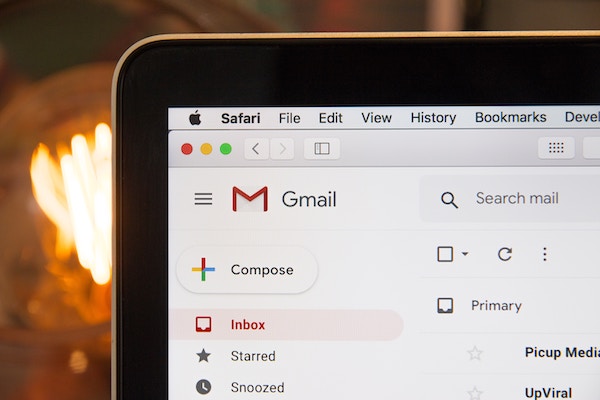How To Interview: The Follow Up
Career Enrichment, Confidence, Interviewing, Self Awareness

Welcome back to our How To Interview series! In the last installment, I covered how to nail the all-important question-and-answer process that will make up the bulk of your interview experience. But as any hiring manager will tell you, that process is only the first stage in winning the job. In order to explain why, I’m going to give you a “peek behind the curtain” and reveal a little about how a hiring manager thinks. This edition of how to interview is focused on the follow up. Let’s go!
First, always remember that the interview process is inherently a competitive one – you don’t get to see your opponents, but you’re competing against them all the same. The other candidates want the same job you want, but there are limited spaces available at any given company. That means (as I mentioned in Part 1!) that you’re not just trying to pass some test and get a good enough “grade” to get a job. You have to be the best candidate out of all those that apply!

That means the interview process has a few built-in disadvantages for you.
Disadvantages:
One.
Every candidate gets an interview. Yes, your performance can be better than theirs (and if you’re keeping up with all the resources we’re giving you, it will be!), but they still get to shoot their shot, the same as you. The questions will be the same, they’ll get the same face time with the hiring manager. No matter how good you are, someone else might also be great.
Two.
In the mind of most hiring managers, the purpose of the interview is to eliminate candidates. I don’t encourage this kind of thinking, but the fact remains that most hiring managers do it this way – if a hiring manager interviews ten people for one role, their goal is to disqualify nine candidates. That means that if you “pass” this round, you’re in the same position still as everyone else sill in the process.
That means that if you really want to land that job, you can’t “just” deliver a great interview. You have to go above and beyond – so in addition to delivering fantastic performances in all the mandatory steps of the interview process, you have to do the things that aren’t mandatory to set yourself apart, and that’s what we’ll talk about here.
The Extra Mile
Here’s a simple thing to know: the more mandatory something is, the less credit you get for doing it.
In other words, everything that’s mandatory becomes the “bare minimum,” and you don’t score points by just doing the bare minimum. That’s just what you have to do to even qualify. You don’t get points for wearing clean clothes to the interview, but you sure lose points if you don’t.
The way to get extra points is to do things you don’t, strictly speaking, have to do. And if you do them well, you’ll give yourself a huge lead over your competition.
First, the most basic of these steps: the follow-up email!
I’m going to tell you a secret that may shock you – or at least, I hope it does. I have conducted thousands upon thousands of interviews in my career. I have received a follow-up email from roughly 1% of them.
That’s not a typo. One percent.
That’s because you don’t have to do them. They’re not mandatory. But I’ll tell you another secret – the percentage of people who send a follow-up email that then advance to the next round is closer to 90%.
Why are these so powerful? Because they enormously improve your average. My impression of you as a hiring manager is naturally limited; I’ve only gotten to know you via your initial application and resume, perhaps a brief phone call (if I was even the one to conduct the phone screen), and then a 30- to 60-minute conversation. That’s not a lot of time to get to know someone, but I’ll make a judgment all the same. I have to; it’s my job.
If you’ve ever left an interview feeling like you didn’t give your best self to the other person, and wished so hard that you could just show them who you really are… you can! Send that email and improve your odds! If your interview was stellar, a follow-up email can’t hurt you unless it’s utterly atrocious (and don’t worry, I’m going to give concrete steps to make sure that doesn’t happen!), and if the interview was not, the email can be!
More than the content of the email, however, is the simple fact that you sent it. You spent additional, optional effort to reach out, connect yourself further, add more to the discourse. You added more familiarity to your name in the mind of the interviewer. (And that’s important: Because of the Exposure Effect). You demonstrated the exact skills almost every employer is looking for.

Do’s and Don’ts for a great follow-up email!
Do:
- Personalize the email! Make sure it’s going to your interviewer directly, reference a specific conversation topic from your interview, and make it friendly. Don’t write something stuffy and formal.
- Show excitement for the next steps! Express that you’re looking forward to your next conversation, or that you can’t wait to meet other members of the team.
- Add more value! Share something relevant – an article on the industry, a resource that you’ve found helpful, a previous project of yours that came up during the interview.
- Send it quickly! 24 hours is the absolute maximum; I prefer within the hour. You want the emotional impact of the email to hit while you’re still on their mind – and that mind might not yet be made up.
- Keep it short and simple! A follow-up email isn’t an essay. Your highest impact is in 3-5 sentences.
Don’t:
- Don’t be sloppy! Check your grammar, make sure your links work, and please please PLEASE spell everyone’s name correctly.
- Don’t try to “fix” anything! Don’t bring attention to any particular things you think you did badly – first off, they probably didn’t even notice what you think is a glaring mistake. But also, backtracking isn’t a good look. Add more value, don’t try to erase what happened.
- Don’t be pushy! No one in history has ever gotten a faster, more positive response from a hiring manager by asking if they’ll hear back before the end of the week. Hiring managers should be managing candidate timelines respectfully, but if they aren’t, you don’t gain anything by pointing it out.
- Don’t be desperate! Avoid saying things like how much you want the job. Not only do they already know you want it, but how much you want a job doesn’t factor into their decision in the slightest. They’ll hire the person that adds the most value – so if you want the job, “show, don’t tell” by adding that value, not by begging.
- Don’t shoot yourself in the foot! Don’t ask about negatives that haven’t come up yet – and might not ever. Lastly, it’s best if you don’t bother talking about the possibility of not moving forward. Keep your tone positive!
I’m going to put this all together for you and give you two examples. First, a great example that a hiring manager would be thrilled to get, then a truly terrible follow-up email (one so bad it might actually count against you to send!).

The Good…
Dear Sandra,
Thank you so much for the great conversation today! I thoroughly enjoyed our verbal tour of the company, especially your role in the early growth. I’ve attached that sales plan we discussed so you can take a look – I’d be thrilled to hear what you and your team think of its applicability to the role. I can’t wait to meet the rest of your team after you come back from Disney World; have a wonderful time with your family!
All the best,
Randalyn
The bad…
Dear Mr. Rocia,
I hope you didnt misunderstand my answer about my experience with databases. What I was trying to say is that I new them very well but it came out sounding like I liked that kind of work but its really something I’m trying to avoid. I just don’t respond well under pressure so I wouldn’t do well if tested on them even tho I would do very well with them in the roll. Even though I don’t love database management I really want this job so I would definitely do it. I hope I’ll hear back from you this week.
Aaron
(If you think I’m exaggerating on the quality of this for comedic effect: I. Am. Not. Thankfully ones this bad are rare, but they do happen. Book a complimentary consult with me and I’ll share some horror stories as cautionary tales!)
…And the ugly!
There’s no getting around it: sometimes you get the dreaded rejection email. In fact, statistically it’s likely to happen at least as often as getting good news, but it’s possible to follow up even here and gain some value!
So you’ve been rejected for a job you interviewed for. Email the person you interviewed with, as politely as humanly possible, and thank them. This absolutely does not work if you’re even the slightest bit argumentative, snarky, or petty. You’re not writing this email to contest their decision. You’re writing this email to genuinely thank them for their time and the opportunity. And you’re going to show some humility and say that you’re eager to learn and improve. And then, with tremendous politeness, you’re going to ask if they could possibly give you some feedback as to what you could have improved as far as your skills or interview technique.
Worst case scenario: They don’t respond. You’ve lost nothing. Since they’ve already said “no,” you’re not risking anything here. You have nothing to lose.
But the other possibilities are all upside! You might get genuine feedback and advice that you can use to improve. You might impress someone enough to get a reference for another role or similar help on your journey. Or you might even impress someone enough to reconsider their initial decision! Even if any of these cases are unlikely, it costs absolutely nothing to try.
On more than one occasion I’ve had someone I rejected for a position do this with me, and in nearly every case I helped them land a job – sometimes in another department of my own company! The character that this sort of letter demonstrates is worth a tremendous amount of consideration, and therefore it’s absolutely worth your time to send.

Then What?
Despite the best practices on your part, sometimes you hear crickets. You had a great interview, sent a great follow-up email, and then a week passed with no response. No news is good news – unless you’re eagerly hitting “refresh” on your inbox every ten seconds waiting for sign.
The temptation to poke and prod is very strong. You’ll want to send an email asking for updates, but that’s absolutely the wrong approach. Those kinds of emails are best suited for people that owe you something, and that’s not the dynamic at play here. (For any hiring managers reading this: You absolutely DO owe your candidates respectful treatment of their time, but I know that isn’t going to change overnight.) If the hiring manager hasn’t emailed you back, there’s a reason – and in the majority of cases, that reason is that a decision hasn’t been made yet. So you don’t want a quicker answer, you want a better one!
The best way to send this kind of follow-up email is to speak confidently like you would to someone who is already a professional colleague.
Add some value so you’re giving, not just asking. Show them you’re thinking of them without being pushy!
Dear Sandra,
I hope you had a wonderful time in the Magic Kingdom! I can’t wait to hear about it. If I am remembering correctly, you mentioned that your team was looking at new workforce management solutions; this week I happened to come across this article on a new SaaS solution that felt like it fit what you were looking for, so I wanted to pass that your way. Have an outstanding weekend, and I look forward to our next talk!
All the best,
Randalyn
An email like that keeps you familiar to the hiring manager, and associated with nothing but positivity and value, instead of feeling like a thorn in their side. I know the impulse is strong to ask when you can expect an answer, but I promise you that question never helps. Fight the urge!
Mastering the follow-up puts you head and shoulders above your competition. Practice these techniques and watch your response rate soar! The best way to practice is to do it, of course – so follow up with ME and tell me what you found most valuable, ask me more questions, or give me suggestions for my next installment. I can’t wait to hear from you!


